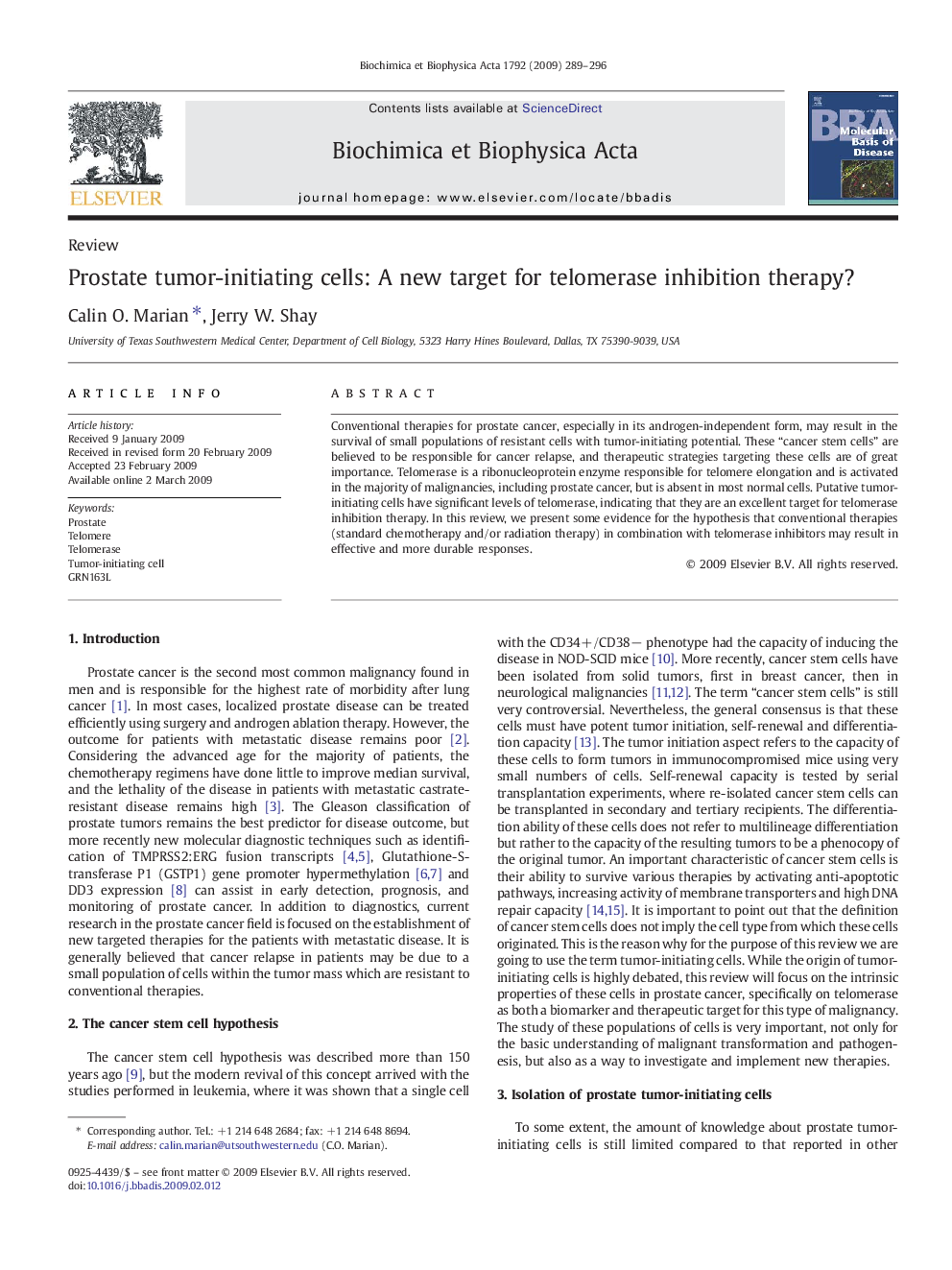| Article ID | Journal | Published Year | Pages | File Type |
|---|---|---|---|---|
| 8261961 | Biochimica et Biophysica Acta (BBA) - Molecular Basis of Disease | 2009 | 8 Pages |
Abstract
Conventional therapies for prostate cancer, especially in its androgen-independent form, may result in the survival of small populations of resistant cells with tumor-initiating potential. These “cancer stem cells” are believed to be responsible for cancer relapse, and therapeutic strategies targeting these cells are of great importance. Telomerase is a ribonucleoprotein enzyme responsible for telomere elongation and is activated in the majority of malignancies, including prostate cancer, but is absent in most normal cells. Putative tumor-initiating cells have significant levels of telomerase, indicating that they are an excellent target for telomerase inhibition therapy. In this review, we present some evidence for the hypothesis that conventional therapies (standard chemotherapy and/or radiation therapy) in combination with telomerase inhibitors may result in effective and more durable responses.
Related Topics
Life Sciences
Biochemistry, Genetics and Molecular Biology
Ageing
Authors
Calin O. Marian, Jerry W. Shay,
